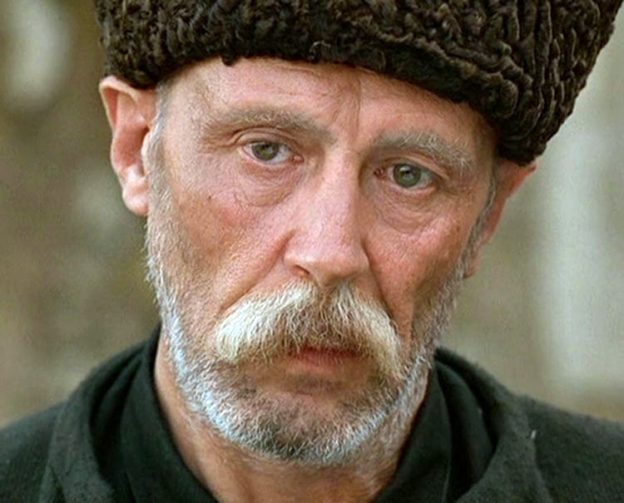I’d give Prisoner of the Mountains a solid 7/10 rating. It combined all of my favorite things about movies: comedy, action, and love. Unfortunately, I have never been particularly attracted to war films, so, based purely on commitment to my true being, I was unable to give the movie a higher rating. This film expertly displays the conflict between Russian military ideals and the culture of the native Chechen people. The beginning scenes did a wonderful job of setting up the contrasting images of the Russian military and the Chechen people that the director, Sergei Brodov wanted to convey. In the scene where the boys were walking naked in the hospital, the camera angle and frame, made it seem as if the boys were riding on toy horses like children instead of covering themselves. This scene shows that the ‘great’ Russian army consists of childish boys, not strong men. Also, when the doctor is checking to make sure everything is alright with Vanya’s genitalia, Vanya is unable to stifle his laughter. This scene furthers the childish motif. On the other hand, when Abdul is first introduced, he is pictured standing squarely, gun in hand, with the towering mountains in the background. This scene works to depict the strength of not only Abdul, but also the Chechen people as a whole. By depicting him with the image of a formidable, mysterious mountain, the scene shows the Chechen people’s allegiance to nature and gives them a mystical quality. Additionally, since mountains are such unmovable figures, Abdul’s association with them gives him an unfaltering demeanor. Therefore, his masculine strength and size are exacerbated. These two scenes set the stage for the rest of the plot to unfold.

